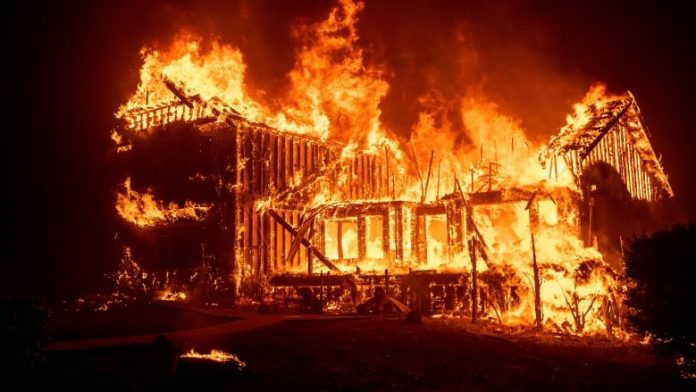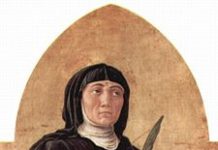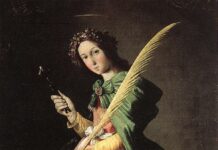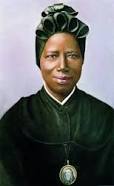Malibu is burning, and we may be inclined to see some sort of divine sign in the conflagration, not least in the loss of the ironically-named razed city of ‘Paradise’. We should pray for the dead, the wounded, the sorrowing.
Is God saying something here? True, there are no ‘accidents’ in God’s providence, for the Almighty governs all His creation, right down to every ‘concrete and immediate’ event, as the Catechism puts it. A hydrogen atom cannot spin without the Almighty in some way willing it, all through the proper chain of causality, of course.
When tragedy strikes human beings, plane crashes, terrorism, disease, illness, there is, as Pope John Paul II points out in his 1984 Apostolic Letter on suffering, Salvifici Doloris, some kind of connection with punishment in the specific or the broad sense, at least since that original sin of Adam, which has condemned us to a world of thorns and thistles, of suffering and hardship. Yet as Christ in His cryptic warning of says of those crushed by the tower of Siloam, they were no more guilty than anyone else, but if we do not repent, we will all likewise perish. And as King Belshazzar discovers in today’s Office of Readings, the writing is on the wall for us all. Tekel, tekel…
We would be prompted to despair – as so many now are – were it not for the great good news of Jesus Christ, that we are on a brief pilgrimage through this valley of shadows and death, on the way to eternity and beatitude; all we need do is respond to the grace of God, and prepare ourselves in some way for that fateful moment when we will meet our Saviour face to face. For it was at the pool of Siloam that Christ also made the blind man see.
And in that light of God’s providential design, through all the good and evil we may do, we should ponder the historical significance of the ‘Great War’ as we continue in this hundredth anniversary of its end, for God is telling us something there also. We have had two ‘world wars’, and the world seems poised on the brink of a Third. Just as technology made the Second in many ways worse than the First, we can scarcely imagine what the next might bring. In 1914 and 1939, there was, for example, little awareness of the resurgence of radical and militant Islam (although both Belloc and Chesterton presciently predicted the rise of such), and nuclear weaponry had yet to be invented (with the first atomic test in July of 1945, and the bombings of Hiroshima and Nagasaki that August).
So we pray for peace, which resides not in some external balance of power, but in the hearts of men, the same place that wars begin, as Saint James teaches in his letter. That is where real evil, and real good, reside. Hence, regardless of what happens in the external world, we may be free of anxiety, and its root, despair. For it is only if Christ truly rose from the dead and offers the same to us, that we can endure and persevere through whatever it is God may permit, good or bad. If we lose that hope, as Saint Paul says, we are of all men most to be pitied.
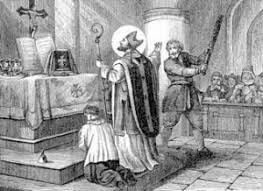
And today, on a final note, is the commemoration of Saint Lawrence O’Toole (+1180) whose name in original Gaelic was Lorcan Ua Thuathil, a 12th century monk, abbot and eventually archbishop in Ireland (the first prelate of Dublin) who helped shape the Irish church, build up its union with Rome, reform the rather rough rural clergy and fought for her rights against the encroachments of the English king, Henry II, the same one whose angry words had caused the martyrdom of Thomas a Becket. It was at his shrine in Canterbury that some madman tried to do the same to Lawrence while he was saying Mass; fortunately, there was only one would-be assassin, and he used a ‘club’ instead of a sword, so the good bishop survived, blessing his own wound with holy water, apparently miraculously staunching the flow of blood, and the good bishop went on to complete the Holy Sacrifice. Lawrence lived an ascetical life, never eating meat, fasting on Fridays, all the while treating his guest sumptuously, even colouring his own water to look like wine, so as not to diminish the joy of his company.
I mention him in part since I myself am of Irish lineage, and the small town in which I live (and it is a small town, with a population at most of 1300) there are two Catholic parishes (yes, two….we are blessed), one of them dedicated to Saint Hedwig, and the other to Saint Lawrence, O’Toole. May the good saint intercede for Ireland, which seems to be losing her moral moorings by the minute, that the once-Catholic Gaels may once again find their senses, and come back to the Church of her ancestors.

